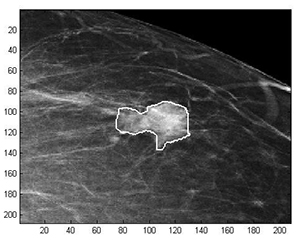Latest News Archive
Please select Category, Year, and then Month to display items
16 April 2024
|
Story Anthony Mthembu
|
Photo Supplied
 Melanie Ridgard celebrates receiving a Master of Business Administration (MBA) at the graduation ceremony held at the UFS Bloemfontein campus on 19 April 2024.
Melanie Ridgard celebrates receiving a Master of Business Administration (MBA) at the graduation ceremony held at the UFS Bloemfontein campus on 19 April 2024.
In the realm of self-development, few stories are as inspiring as that of Melanie Ridgard, the Interim Administration and Events Coordinator at the South African Research Chair in Industrial Development (SARChI-ID) at the University of Johannesburg (UJ). Ridgard’s forthcoming graduation with a Master in Business Administration (MBA) on 19 April 2024 from the University of the Free State (UFS) marks not only a personal triumph but also a testament to the transformative power of higher education.
Reflecting on her journey, Ridgard shares, “This moment signifies a culmination of rigorous studying, dedication and perseverance in mastering business fundamentals, leadership skills and strategic thinking.” Her pursuit of an MBA stemmed from a pivotal moment in her career when she was promoted at the Centre for Teaching and Learning (CTL) at UFS. Tasked with leading a group of young people Ridgard recognised the need to augment her knowledge to effectively guide her colleagues. The MBA became her vehicle for professional growth, extending beyond a mere qualification to a profound transformation of her leadership capabilities.
“Attaining an MBA milestone represents a transformative experience that has shaped my thinking to make impactful contributions in any future landscape,” Ridgard explains. Her experience not only enhanced her strategic acumen but also deepened her understanding of organisational dynamics. She acknowledges the pivotal role played by the UFS Business School in nurturing her journey towards academic and personal success.
What to expect from Ridgard
Looking ahead, Ridgard’s commitment to continuous learning remains unwavering. Selected as one of five MBA students to address the 17th International Business Conference (IBC) in September 2024, she eagerly anticipates the opportunity to share insights on her work titled, “Next-Gen Integration: Navigating the Onboarding Maze for Gen Z in Today's Workplace.” Despite her current responsibilities at UJ, she harbors plans to pursue a PhD in the near future.
Amidst her ambitious pursuits, Ridgard remains grounded, prioritising the celebration of her MBA achievement. ‘’As everyone dreams about it, I just want to walk over that stage in a black gown and a hood on my head with my loved ones cheering me on,’’ she shared.
Ridgard’s journey serves as a beacon of inspiration, exemplifying the transformative potential of education and the enduring impact of determined leadership. Her story reminds us that true leadership is not merely about reaching milestones but also about empowering others and embracing continuous growth.
Mathematical methods used to detect and classify breast cancer masses
2016-08-10
 Examples of Acho’s breast mass
Examples of Acho’s breast mass
segmentation identification
Breast cancer is the leading cause of female mortality in developing countries. According to the World Health Organization (WHO), the low survival rates in developing countries are mainly due to the lack of early detection and adequate diagnosis programs.
Seeing the picture more clearly
Susan Acho from the University of the Free State’s Department of Medical Physics, breast cancer research focuses on using mathematical methods to delineate and classify breast masses. Advancements in medical research have led to remarkable progress in breast cancer detection, however, according to Acho, the methods of diagnosis currently available commercially, lack a detailed finesse in accurately identifying the boundaries of breast mass lesions.
Inspiration drawn from pioneer
Drawing inspiration from the Mammography Computer Aided Diagnosis Development and Implementation (CAADI) project, which was the brainchild Prof William Rae, Head of the department of Medical Physics, Acho’s MMedSc thesis titled ‘Segmentation and Quantitative Characterisation of Breast Masses Imaged using Digital Mammography’ investigates classical segmentation algorithms, texture features and classification of breast masses in mammography. It is a rare research topic in South Africa.
Characterisation of breast masses, involves delineating and analysing the breast mass region on a mammogram in order to determine its shape, margin and texture composition. Computer-aided diagnosis (CAD) program detects the outline of the mass lesion, and uses this information together with its texture features to determine the clinical traits of the mass. CAD programs mark suspicious areas for second look or areas on a mammogram that the radiologist might have overlooked. It can act as an independent double reader of a mammogram in institutions where there is a shortage of trained mammogram readers.
Light at the end of the tunnel
Breast cancer is one of the most common malignancies among females in South Africa. “The challenge is being able to apply these mathematical methods in the medical field to help find solutions to specific medical problems, and that’s what I hope my research will do,” she says.
By using mathematics, physics and digital imaging to understand breast masses on mammograms, her research bridges the gap between these fields to provide algorithms which are applicable in medical image interpretation.